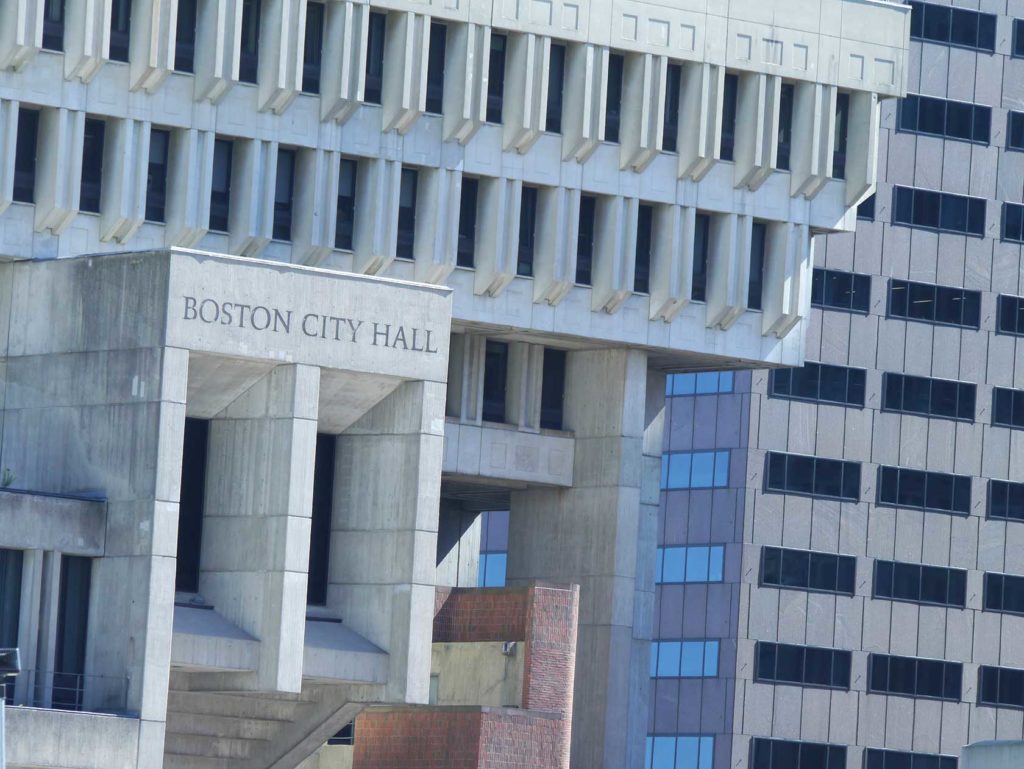As Boston weighs a reparations commission, questions of cost and control arise
Edwards questions $100-per-hour stipends for commission member

As Boston moves to establish a commission charged with crafting a municipal reparations policy, District 1 City Councilor Lydia Edwards is raising questions about the potential cost of such a commission and how its membership would be determined.
Proponents say reparations would provide meaningful recognition and compensation for descendants of people harmed by years of racist policies, dating back to legally sanctioned enslavement. Boston City Council’s first step in the process is creating a commission responsible for drafting a policy, which would detail who is eligible for reparations and how payments would be handled.
At a Monday hearing of the Boston City Council’s government-operations committee, Edwards noted that, as currently conceived, the commission would include 15 members who would be paid $100 hourly, with compensation capped at $50,000 annually, as well as an executive director and assistant.
“That could put this at well over, or close to, a million dollars a year in order to operate the commission. … I don’t know that any other commission that’s ever been created by this body, or the mayor’s office, has a budget that high,” Edwards said.
Edwards also questioned the plan to reserve five commission slots for representatives of specific organizations, including the NAACP Boston Branch and the New Democracy Coalition, who would then choose 10 other commission members in consultation with the City Council and Mayor Michelle Wu.
“Why aren’t the City Council able to not just consult, but confirm who’s going to be on the commission as well?” Edwards asked. “We’re giving specific organizations a lot of power over a million-dollar budget, and they’re not elected. … I don’t know why they got picked.”
At-Large Boston City Councilor Julia Mejia, one of the lead sponsors of the ordinance that would create the commission, later said that the organizations in question have a long track record on reparations.
“Over the last year or so, we have been in communication with the organizations that have been listed to help inform a lot of our thinking,” Mejia said. “And so, in the spirit of making sure that we’re leading with community, we were really intentional about naming those organizations. … So it’s less of a situation of favoritism, but more of the folks who have been at the table here in the city [of] Boston doing this work in different capacities.”
The proposed committee’s compensation structure should be the norm rather than the exception, Mejia suggested.
“The question I think we should be asking is, why aren’t other committees getting paid?” Mejia said. “Why are we expecting people to show up and donate their time and participate?”
At one point, another lead sponsor, District 7 Councilor Tania Fernandes Anderson, seemed to question the motivation behind Edwards’ questions.
“This process … should be gentle and should be forgiving … so that we can address this issue in its proper context,” Anderson said. “But also with heart, and more than just bureaucratic delay tactics, or nuances that we’re trying to create so that we can argue our points for the people that we represent.”
Later in the hearing, Edwards identified the scope of possible reparations as a key question that still needs to be hashed out.
“I am African American,” she said. “I can tell you the slave ancestors I’ve come from in this country, but I don’t come from Boston. So that’s another question I would have: is the reparations conversation only for African American descendants of slaves in the city of Boston, from the city of Boston, that can trace their ancestry back to slavery in Boston?
“We don’t have to answer [that],” she added. “The commission could. The commission could easily say … it’s going to be anybody who is perceived as having been part of the legacy of slavery, because just because you are not directly descended from slaves here, you certainly could experience the racial oppression from that.”
Edwards also suggested that, rather than creating a commission that could operate indefinitely, the city should simply establish an office dedicated to reparations instead.
According to Anderson, a department of reparations is, in fact, a long-term goal.
“The whole point is so that the commission can turn into a department hopefully, right?” said Fernandez Anderson. “So let’s talk about those specifics. Is it a commission for a couple years, and does that make sense? Do we go straight into a department?”
Edwards was recently elected to the state Senate in a special election and plans to give up her council seat at the end of April. No other councilor who participated in Monday’s hearing was as pointed in their questioning.
The ordinance’s supporters will now have a chance to fine-tune its language before a final council vote, which is yet to be scheduled.
Adam Reilly is a reporter at GBH-TV’s Greater Boston.






